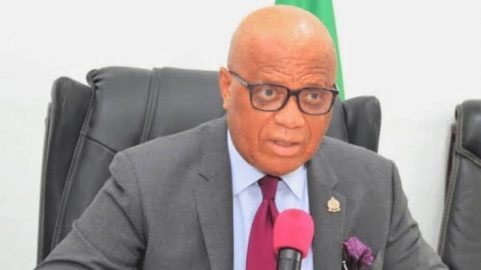By Harris Emanuel Managing Editor.
The ongoing crisis surrounding the traditional stool in Akwa Ibom state shows no signs of slowing down, with accusations from the Akwa Ibom United Front and the Peace Advocacy Initiative claiming that the crisis is politically motivated.
The group has threatened to expose the politicians behind the turmoil in the state.
Governor Umo Eno’s approval of the amended Traditional Rulers Council Law CAP155 has been met with rejection from some royal fathers from Annang and Oro nation.
These traditional rulers argue that the amended law is discriminatory as it aims to grant perpetual leadership of the Traditional Rulers Council to the Oku Ibom Ibibio, disregarding the longstanding rotational provision among all paramount rulers in the state.
The new Supreme Council of Akwa Ibom Traditional Rulers, birthed by the Bill, has the Ibibio Patriarch and Oku Ibom Ibibio Nteyin Solomon Etuk as the President-General for life.
The State government, represented by Commissioner for Information, Ini Ememobong, has stated that they do not wish to interfere in traditional matters but urge the Royal fathers to resolve their differences through dialogue.
Various youth groups have taken to the streets in protest of the TRC law, with insults being hurled at government officials on social media.
Women from smaller ethnic groups in the state blocked the entrance of the State House of Assembly, demanding the withdrawal or further amendment of the law.
In a statement signed by their National Coordinators Christopher Okon and Joseph Ukpong, the groups expressed regret that many youths are reacting out of ignorance, manipulated by politicians to destabilize the government.
They warned against ethnic chaos in Akwa Ibom State and emphasized the need for dialogue.
The groups highlighted that the law has been in existence for some time, with only amendments made to address contemporary issues in the traditional institution.
They alleged ongoing mobilization of youth groups in Annang land, Oro nation, and Obolo people of Eastern Obolo to protest against the government.
The groups urged for a proper legislative procedure to handle the sensitive issue, advising against misleading the traditional rulers.
They emphasized the importance of following due process to address the crisis and maintain peace in the state.









Comment here